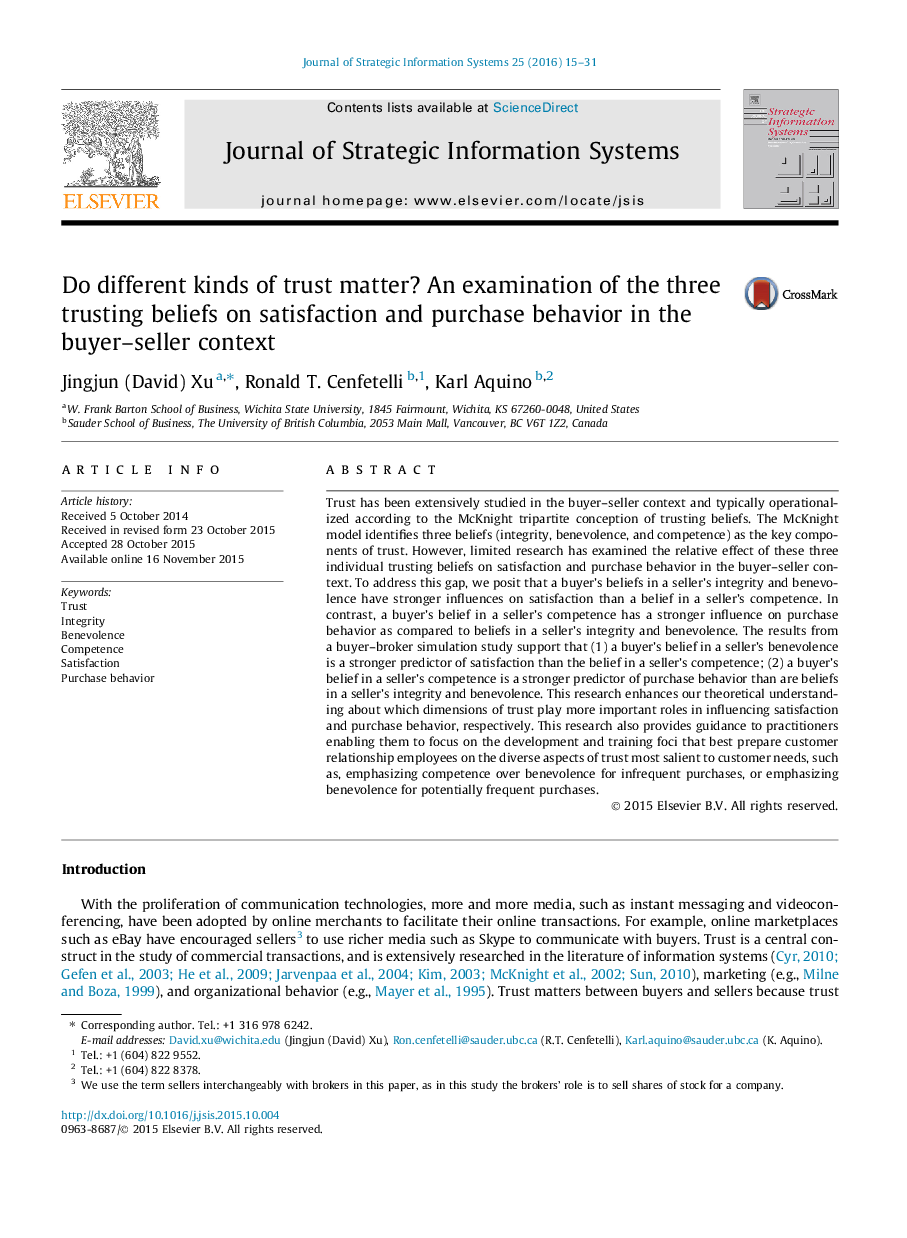| Article ID | Journal | Published Year | Pages | File Type |
|---|---|---|---|---|
| 556211 | The Journal of Strategic Information Systems | 2016 | 17 Pages |
•The three trusting beliefs have different effects on satisfaction and purchase.•Benevolence belief is a stronger predictor of satisfaction than competence belief.•Competence is a stronger predictor of purchase than integrity and benevolence.•Future trust research should include both satisfaction and purchase behavior.
Trust has been extensively studied in the buyer–seller context and typically operationalized according to the McKnight tripartite conception of trusting beliefs. The McKnight model identifies three beliefs (integrity, benevolence, and competence) as the key components of trust. However, limited research has examined the relative effect of these three individual trusting beliefs on satisfaction and purchase behavior in the buyer–seller context. To address this gap, we posit that a buyer’s beliefs in a seller’s integrity and benevolence have stronger influences on satisfaction than a belief in a seller’s competence. In contrast, a buyer’s belief in a seller’s competence has a stronger influence on purchase behavior as compared to beliefs in a seller’s integrity and benevolence. The results from a buyer–broker simulation study support that (1) a buyer’s belief in a seller’s benevolence is a stronger predictor of satisfaction than the belief in a seller’s competence; (2) a buyer’s belief in a seller’s competence is a stronger predictor of purchase behavior than are beliefs in a seller’s integrity and benevolence. This research enhances our theoretical understanding about which dimensions of trust play more important roles in influencing satisfaction and purchase behavior, respectively. This research also provides guidance to practitioners enabling them to focus on the development and training foci that best prepare customer relationship employees on the diverse aspects of trust most salient to customer needs, such as, emphasizing competence over benevolence for infrequent purchases, or emphasizing benevolence for potentially frequent purchases.
